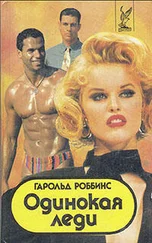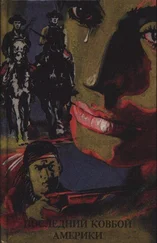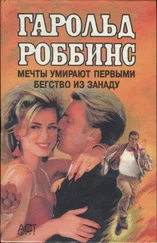Гарольд Роббинс - The Raiders
Здесь есть возможность читать онлайн «Гарольд Роббинс - The Raiders» весь текст электронной книги совершенно бесплатно (целиком полную версию без сокращений). В некоторых случаях можно слушать аудио, скачать через торрент в формате fb2 и присутствует краткое содержание. Жанр: Современная проза, на английском языке. Описание произведения, (предисловие) а так же отзывы посетителей доступны на портале библиотеки ЛибКат.
- Название:The Raiders
- Автор:
- Жанр:
- Год:неизвестен
- ISBN:нет данных
- Рейтинг книги:3 / 5. Голосов: 1
-
Избранное:Добавить в избранное
- Отзывы:
-
Ваша оценка:
- 60
- 1
- 2
- 3
- 4
- 5
The Raiders: краткое содержание, описание и аннотация
Предлагаем к чтению аннотацию, описание, краткое содержание или предисловие (зависит от того, что написал сам автор книги «The Raiders»). Если вы не нашли необходимую информацию о книге — напишите в комментариях, мы постараемся отыскать её.
The Raiders — читать онлайн бесплатно полную книгу (весь текст) целиком
Ниже представлен текст книги, разбитый по страницам. Система сохранения места последней прочитанной страницы, позволяет с удобством читать онлайн бесплатно книгу «The Raiders», без необходимости каждый раз заново искать на чём Вы остановились. Поставьте закладку, и сможете в любой момент перейти на страницу, на которой закончили чтение.
Интервал:
Закладка:
The telephone rang about five. "Señor Cord? Momenta. Señora Escalante."
"Jonas?" A small voice. Familiar? He was not sure.
"Sonja? Do you remember me?"
"Remember you? What would you suppose, Jonas?"
Her English was as it had been: only faintly accented. The image of her that he had retained in his memory all these years was vivid; and he wondered if she was anything like that image anymore.
"I deeply regret ..." His voice caught.
"What do you regret, Jonas?"
"That so many years have passed. That I didn't come looking for you."
"I wouldn't have received you," she said with a firmness in her voice that he had only rarely heard but still vividly remembered. "I have always known where you were. You might have had a little difficulty finding me, but I would have had none finding you. Your name is in the newspapers constantly."
"I'd like to see you, Sonja."
"It's all right now," she said. "You will be welcome for dinner tomorrow night. My husband knows about you and will be glad to meet you."
"I would like to meet your husband, Sonja. Might we, though, meet for the first time ... alone?"
"Where?"
"In a public place. In a restaurant. It's your city. Tell me where."
"Harry's American Bar," she said. "I don't go there often. Make a reservation for nine tomorrow evening."
"I will. And I — I will be there at nine."
4
He was on time. She was on time. She recognized him. He recognized her. He stood. She came to the table, let him kiss her hand, and sat down.
The years had not changed her much. He had not seen her for twenty-five years, but she was Sonja Batista, just as he remembered her. She smiled. She'd always had a beautiful smile. She'd always had a strong, symmetrical, beautiful face.
Changed — Well, she did have a bit more flesh on her face, softening the lines of her high cheekbones and her firm jaw. Her face was incised with very fine lines at the corners of her eyes and mouth but with no others. If he could judge through her clothes, her breasts were a little more generous than they had been before. They had always been generous enough to win his attention and admiration.
Unchanged — Her dark-brown hair framed her face and fell to her shoulders, a little unruly as always. When he met her, bobbed hair had been in fashion, but Sonja had never bobbed hers. She had been too proud of it. Her brown eyes confronted the world with challenging skepticism, just as he remembered. He remembered too and saw again a stalwart face that did not flinch from reality.
"Twenty-five years," he said. He shook his head. "It's unbelievable."
"I have followed your career," she said. "The newspapers mention you often."
"But what of you, Sonja? I am embarrassed to have to say I have not followed your life."
"That would have been difficult," she said. "I have lived a very quiet, very private life, very different from the way it was when you knew me."
"I told you to call me if you ever needed anything."
For an instant her warm smile turned mordant, but quickly it returned to the open, welcoming smile she had shown him since she sat down. "I never wanted anything from you, Jonas," she said. "I thought of calling you once and decided not to."
He glanced down at the huge diamond she wore on her ring finger. She wore a wedding band also.
She saw the glance and said, "I have been married for twenty-four years."
5
The chastity belts Jonas had heard rumored were in fact worn by a few very traditional, typically very wealthy Mexican women. Sonja wore one.
It could not have prevented her having sex with a man not her husband, if she wanted to. All it did was identify her as the wife of Virgilio Diaz Escalante y Sagaz and was more in the tradition of the name-embroidered silk ribbons some Islamic women wore around their waists in the Middle Ages than the iron belts some prankish women were condemned to endure. It was exquisitely crafted, forbiddingly expensive, and entirely comfortable to wear. Two fine and flexible diamond-studded platinum bands circled her upper legs, another circled her hips, and a supposed shield joined these three bands. Nothing guarded her rear. She could easily have broken the thin metal and taken it off , and if she had, Virgilio would almost certainly not have suspected anything ill. On the other hand, if she didn't break it she could not have removed it; it was locked on her. Virgilio took it off when they had sex, or whenever else she asked him to.
She had worn it for more than twenty years and was proud her husband had never had to return it to the craftsman to be enlarged — as did most husbands who had fitted their wives with these belts.
The man sitting with her, Jonas Cord, could not have understood why she consented to wear the belt. Such a thing was beyond his norteamericano comprehension. A Yankee, he was deficient in the warm, sympathetic understanding, man for woman and woman for man, that so much characterized the Latin peoples. She had once admired his unsentimental Yankee practicality — and maybe did yet, a little — but she was glad her son had been reared in a different tradition.
Her family tradition could not have been more different from the Cord tradition. Her uncle was Colonel Fulgencio Batista y Zaidivar, once President — dictator — of Cuba and likely to be again. Jonas Cord could not begin to comprehend what that meant. When she met him, in 1925, not long before the death of his father, her uncle — her father's baby brother, much nearer her own age than her father's — was a fugitive, and so was her father. They would have been summarily shot if the then Cuban government could have laid hands on them.
She herself might have been shot. At the very least, if she had been caught in Cuba, she would have been — well, it would have been a painful experience. Her uncle's ambition and what he did in pursuit of it had interrupted her education and forced her to accompany her family into exile, first in Florida, then in Texas, finally in California.
When she met Jonas Cord she was nineteen years old. He was twenty-one. She had been educated in a convent and was confused and frightened, not just by the world but by this strange, bustling yanqui world into which she had been precipitated. She was so naive that she did not understand that norteamericanos did not apply the word Yankee to the residents of Florida, Texas, or California. It was all Yankee to her. The nuns had taught her English — but not the kind of English she heard spoken. They had taught her that America was a land of big men and big women.
The women ... They dressed outlandishly in short skirts and tight bodices and were aggressively bold, the nuns had said. They painted their faces. They smoked little cigars. (The nuns didn't know about cigarettes.) They drank distilled liquors. Unmarried girls went abroad in the streets day and night, without dueñas. They went to theaters and to dance halls without escorts. Some of them drove automobiles. Some of them lived in flats they shared with other girls, without parents or brothers to supervise and protect them. As a result, American men had no respect for American women, and any woman's virtue was constantly at risk.
Arriving in the United States, she had found that what the nuns had taught her was true, mostly. Girls her age did indeed wear their skirts above their knees, and they cut their hair so short their ears were exposed. They smoked and drank like men. They lacked elementary grace and seemed to know little of common courtesies. Worst of all, in their country they were not strange; she was.
Her father and her uncle traveled, where she did not know; but they were not often at home. A Mexican family somehow involved in her uncle's plans to seize power in Cuba were glad to offer Sonja and her mother a place in their home in Los Angeles, and they lived there for two years.
Читать дальшеИнтервал:
Закладка:
Похожие книги на «The Raiders»
Представляем Вашему вниманию похожие книги на «The Raiders» списком для выбора. Мы отобрали схожую по названию и смыслу литературу в надежде предоставить читателям больше вариантов отыскать новые, интересные, ещё непрочитанные произведения.
Обсуждение, отзывы о книге «The Raiders» и просто собственные мнения читателей. Оставьте ваши комментарии, напишите, что Вы думаете о произведении, его смысле или главных героях. Укажите что конкретно понравилось, а что нет, и почему Вы так считаете.










